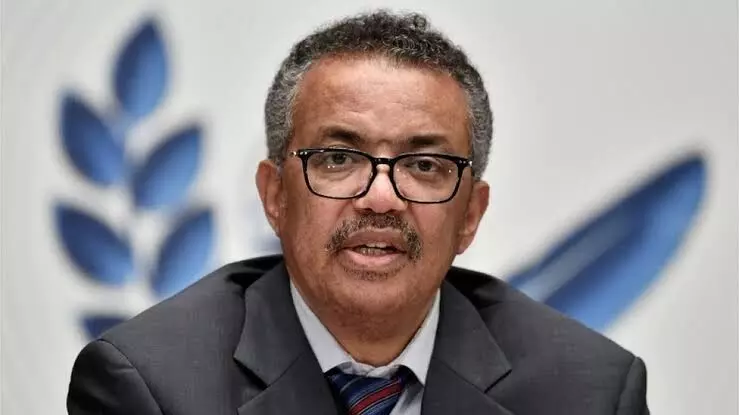
WHO head calls for pandemic treaty as part of bold reforms
text_fieldsAs part of sweeping reforms envisioned by member states, head of the World Health Organization has called for speedily launching global negotiations to agree on an international treaty on pandemic preparedness.
He opined that the treaty could also strengthen relations between member states and foster cooperation.
"This is an idea whose time has come," said Ghebreyesus, in his closing remarks at the WHO's 74th World Health Assembly (WHA), which took place online from May 24 to Tuesday.
At the 2021 WHA, which had the theme "Ending this pandemic, preventing the next one", Ghebreyesus also called for a stronger and better-financed WHO.
He said that an international treaty would connect countries in ways that strengthen the world's health security while more resources and authority are direly needed.
He took example of how pathogens have greater power than WHO and explained how they are emerging more frequently in a planet out of balance.
"They exploit our interconnectedness and expose our inequities and divisions. The safety of the world's people cannot rely solely on the goodwill of governments," he said.
A treaty would make countries more accountable to one another, he remarked.
The lack of sharing — of information, technology, resources and data — is the COVID-19 pandemic's defining characteristic, the WHO leader said.
The pandemic preparedness treaty was first fronted in March with the aim of obligating all countries to unite in the fight against any future pandemics, alienating nationalistic tendencies that prompt nations to seek singular responses to the crises.
The proposal was supported by more than 20 global leaders and officials from across Europe, Africa, South Africa and Asia, including Rwandan President Paul Kagame, Kenyan President Uhuru Kenyatta, Tunisia's President, Kais Saied, Senegalese President Macky Sall, French President Emmanuel Macron and German Chancellor Angela Merkel.
WHO has been vocal on the need to unite globally to defeat the virus. From synchronizing national strategies to sharing critical scientific data, the agency's Director-General has repeatedly called upon all nations to dovetail their responses to global strategies.






















